What are the Most Common Applications of Artificial Intelligence in Healthcare
Published: 4 Mar 2025
Artificial Intelligence is changing the way healthcare works. AI refers to technology that allows machines to perform tasks that usually need human intelligence like diagnosing diseases or analyzing medical data. In healthcare, AI is being used to make doctors’ jobs easier and help patients get better care.
The purpose of this blog is to explore how AI is making a big difference in healthcare. From diagnosing diseases faster to creating personalized treatment plans, AI is transforming the industry. We will look at its benefits, real-life examples, and the challenges it faces. Whether you’re a healthcare professional or just curious, this blog will give you a clear understanding of AI’s role in improving healthcare.
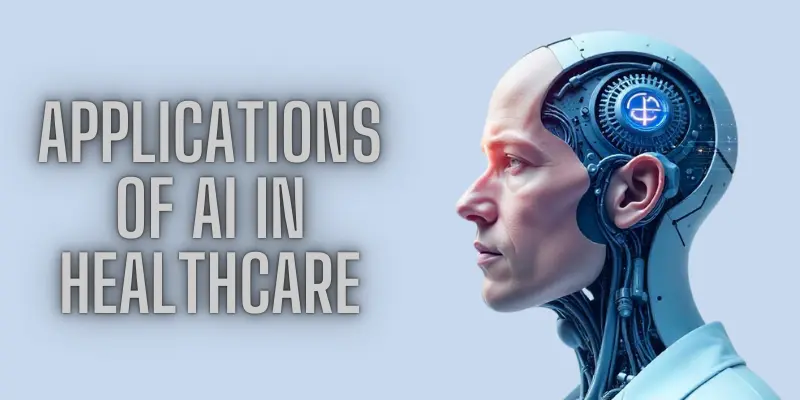
AI in Medical Diagnosis
Artificial Intelligence (AI) is revolutionizing the way doctors diagnose diseases. By analyzing vast amounts of data quickly, AI helps medical professionals make more accurate decisions. It has the power to improve the speed of diagnosis, which can be crucial in urgent cases. With AI, doctors can get a second opinion from a system trained on millions of medical records, ensuring no detail is overlooked.
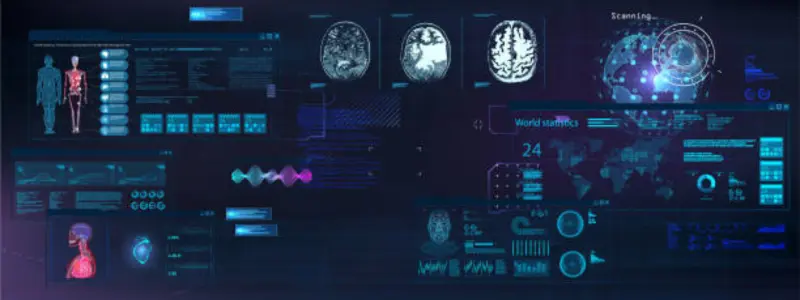
AI tools are used to detect patterns in medical images, analyze lab results and even predict potential health risks. These systems reduce the time it takes to identify diseases and can even spot early signs that might be missed by the human eye. The result is faster, more reliable diagnoses, which lead to better patient outcomes.
Here are five key ways AI improves medical diagnosis:
- AI reviews medical data faster than humans.
- It analyzes medical images with high accuracy.
- AI can detect diseases early, even before symptoms show.
- It helps doctors make informed decisions by providing insights from large datasets.
- AI assists in identifying rare or hard-to-diagnose conditions.
Example
In the field of medical imaging, AI has made a remarkable impact. For instance, AI can analyze X-rays or MRIs to spot signs of diseases like pneumonia, fractures, or even cancer. One example is how AI has been used to detect lung cancer in early-stage patients. AI tools analyze X-ray images and learn to recognize patterns of tumors. By comparing these patterns to a vast database, the AI system can help doctors spot even the smallest tumor that might otherwise go unnoticed. This leads to earlier detection and more effective treatment, significantly improving a patient’s chances of recovery.
Also read AI companies in medical imaging where I discussed the top companies using this AI application in their practices.
What is your opinion on AI in Medical Diagnosis?
AI in Personalized Treatment Plans
Artificial Intelligence is playing a crucial role in creating personalized treatment plans for patients. In the past, doctors used general treatment guidelines that might not work for every individual. However, AI can analyze a patient’s unique data, such as their medical history, genetics, and lifestyle, to suggest tailored treatments that are more likely to work for that specific patient.
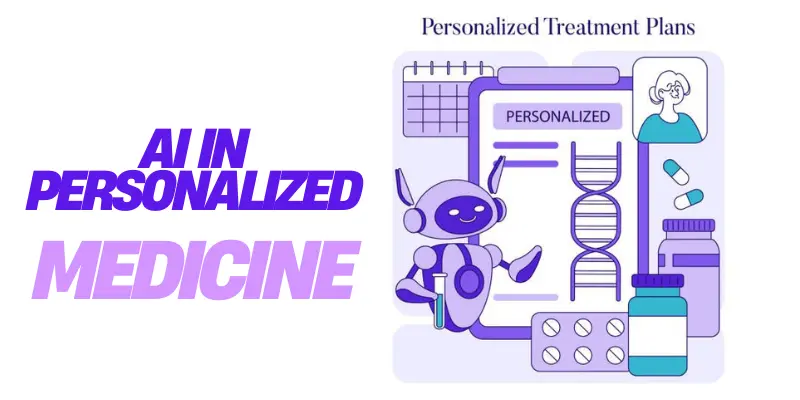
With AI, healthcare professionals can now offer treatments that are customized to each person, improving the chances of success. These personalized approaches take into account factors like age, sex, genetics, and even environmental factors, which can all influence how a person responds to a particular treatment.
Here are five key ways AI is used in personalized treatment:
- AI analyzes individual patient data to suggest the most effective treatments.
- It considers genetic information to recommend personalized medication.
- AI helps in adjusting treatments based on how the patient is responding.
- It can predict potential side effects based on the patient’s history.
- AI improves treatment outcomes by considering the patient’s unique characteristics.
Example: AI in Cancer Treatment
In cancer treatment, AI is used to design personalized therapy plans for patients. For instance, AI systems can analyze a patient’s genetic makeup and identify mutations that are driving the cancer. By understanding these mutations, AI can suggest targeted therapies that are more effective than traditional treatments. One such example is the use of AI in breast cancer treatment, where it helps identify which chemotherapy drugs are most likely to work based on the genetic characteristics of the patient’s tumor. This personalized approach leads to better treatment outcomes and fewer side effects.
AI in Predictive Analytics for Healthcare
Artificial Intelligence is also making a huge impact in predicting patient outcomes. By analyzing data from various sources, such as medical histories, lab results, and even wearables like fitness trackers, AI can help predict the likelihood of a patient developing certain health conditions. This allows healthcare providers to take action before a serious problem arises.
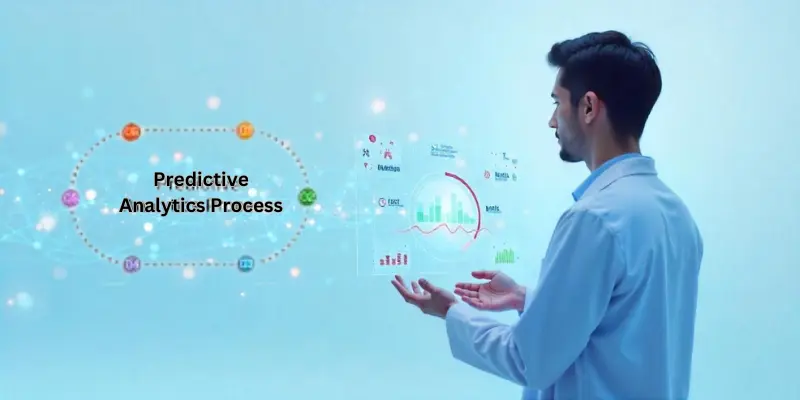
AI can analyze a patient’s current health data and compare it to similar cases in a large database. Based on this, it can predict whether the patient is at risk of developing conditions like heart disease, diabetes, or even a stroke. This predictive capability not only helps with early intervention but also supports preventative care, reducing the need for costly and extensive treatments down the line.
Here are five key ways AI is used for predictive analytics in healthcare:
- AI analyzes patient data to predict future health risks.
- It helps doctors identify patients who are at risk of developing chronic conditions.
- AI can suggest preventive measures to avoid future health issues.
- It allows healthcare providers to monitor patient progress in real-time.
- AI assists in managing long-term conditions, improving quality of life.
Example: AI in Heart Disease Prediction
AI systems are particularly effective in predicting heart disease. By analyzing a patient’s lifestyle, blood pressure, cholesterol levels, and family history, AI can assess the risk of heart disease years before symptoms appear. For instance, AI can look at data from a patient’s regular check-ups and medical records, and based on that data, it can predict whether the patient is at high risk of a heart attack. Early warnings like this give patients and doctors the chance to implement lifestyle changes or preventative treatments that could save lives.
AI in Healthcare Administration
Artificial Intelligence is not just limited to patient care; it’s also improving healthcare administration. One of the biggest challenges in healthcare is managing all the administrative tasks that take up valuable time. AI tools help automate repetitive processes like scheduling, billing, and data entry, which makes the whole system more efficient.
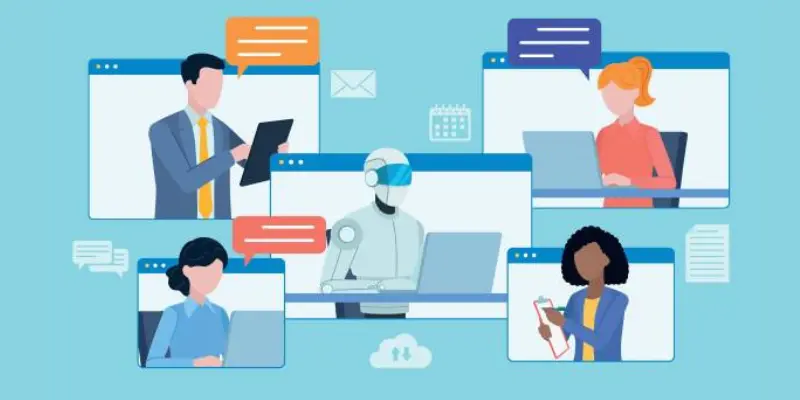
For example, AI can automate the scheduling of appointments, reducing the chance of human error. AI-powered chatbots can answer patient queries 24/7, helping with everything from insurance questions to appointment reminders. This automation allows healthcare staff to focus more on patient care rather than handling administrative tasks.
Here are five key ways AI is improving healthcare administration:
- AI automates administrative tasks, saving time for healthcare providers.
- It streamlines the billing process and reduces human error.
- AI chatbots provide quick answers to patient queries.
- It helps with scheduling and appointment management.
- AI improves overall operational efficiency in healthcare facilities.
Example: AI in Patient Scheduling
One example of AI improving healthcare administration is in patient scheduling. Traditionally, scheduling appointments involved back-and-forth communication and manual input, which could lead to errors. Now, AI-powered systems can handle scheduling automatically, ensuring there are no double-booked appointments and that patients are seen in a timely manner. This saves healthcare providers significant time, allowing them to focus on treating patients. It also reduces wait times for patients, improving their overall experience.
Also Read: AI Companies in Robotic surgery. It is a list of companies with all details which are utilizing AI in Robotic surgery.
all future performing surgeries with greater precision and accuracy. This evolution could lead to shorter hospital stays and improved patient outcomes.
Pro Tip: Also read our article on related topic, Problems of AI in Healthcare.
AI in Drug Discovery and Development
AI is speeding up the process of drug discovery, which is traditionally a long and costly procedure. By analyzing vast amounts of data, AI can identify potential drug compounds much faster than human researchers. This helps pharmaceutical companies find new treatments and bring them to market more quickly, benefiting patients who need new therapies.
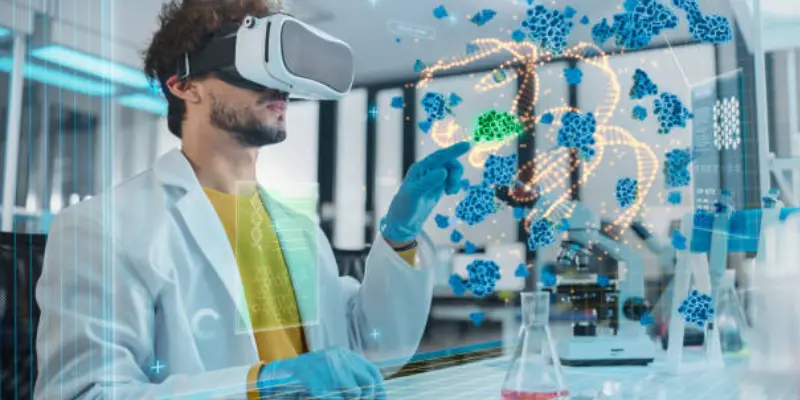
AI can analyze databases of existing drugs, patient data, and scientific literature to predict how different compounds will interact with the body. This allows researchers to test fewer compounds in clinical trials, saving both time and money. AI’s ability to identify promising candidates early in the development process also reduces the risk of failure during clinical trials.
Here are five key ways AI is helping in drug discovery:
- AI analyzes large datasets to identify potential drug compounds.
- It predicts how different drugs will interact with the human body.
- AI helps reduce the time and cost of bringing new drugs to market.
- It helps identify new uses for existing medications.
- AI assists in designing clinical trials that are more likely to succeed.
Example: AI in Cancer Drug Development
One notable example is the use of AI in the development of cancer drugs. AI tools analyze genetic information from cancer patients and identify genetic mutations that drive the disease. By doing so, AI can help researchers identify existing drugs that might be effective against these mutations or even suggest new drug compounds. For example, AI has been used to find potential treatments for breast cancer, speeding up the discovery process and bringing new therapies to patients much faster than traditional methods.
Learn how AI Healthcare startups utilize these AI applications to make betterments in patient healthcare.
Challenges and Ethical Concerns
While AI has great potential in healthcare, there are also challenges and ethical concerns that need to be addressed. One of the main issues is data privacy. AI systems require access to large amounts of patient data to make accurate predictions, but this raises concerns about how securely this information is stored and whether it can be accessed by unauthorized parties.
Another challenge is the potential for bias in AI algorithms. If the data used to train AI systems is incomplete or not representative of all populations, the system could make biased decisions, which could lead to unfair treatment for certain groups of patients. For example, an AI trained primarily on data from one demographic group may not work as effectively for people from different backgrounds.
Here are five key challenges and ethical concerns in AI healthcare:
- AI systems require access to large amounts of patient data, raising privacy concerns.
- There is a risk of bias in AI models if they’re not trained on diverse datasets.
- AI systems must be regulated to ensure they’re safe and effective.
- There’s concern over the accountability of AI-driven decisions.
- AI may replace jobs in healthcare, raising concerns about job loss.
Example: AI and Bias in Healthcare
One example of AI bias is in diagnostic tools. In the past, some AI systems used predominantly white male data to train their models. As a result, these systems performed less accurately for women and people of color. For instance, an AI system designed to predict heart disease might overlook critical risk factors that are more prevalent in women, leading to underdiagnosis and delayed treatment. Addressing this bias requires making sure AI systems are trained on a wide range of data from diverse patient populations, ensuring fair and accurate outcomes for all.
Conclusion
AI is bringing some uncountable changes in healthcare by offering smarter, faster, and more efficient solutions for both patients and providers. From early disease detection to mental health support and fraud protection, these innovations make healthcare more accessible and personalized. I encourage you to explore the applications we’ve covered and consider which ones fit your needs best. Whether it’s using an AI-powered assistant for quick medical advice or wearing a smart device to monitor your health, these AI advancements can help you take control of your health in the best possible way. The future of healthcare is here—why don’t you take full advantage of it?
Common Queries
Here are the frequently asked questions about applications of AI in Healthcare;
No, AI in healthcare is for everyone. Patients can use AI-powered apps, chatbots and wearable devices to track their health, get advice, and even detect early signs of illness. AI helps both doctors and individuals in making better health decisions.
No, AI cannot replace doctors. It helps by analyzing data, detecting diseases and handling routine tasks, but human doctors are still needed for making complex decisions, surgeries and patient care. AI works as a smart assistant, not a replacement.
Some AI-powered tools can be costly, but many are affordable or even free like AI chatbots for mental health or smartphone apps for fitness tracking. As AI technology grows, it is becoming more accessible to everyone.
Yes, AI in healthcare is designed to be safe, but it depends on the quality of the data and the company developing it. Always use AI tools from trusted sources and consult a doctor if you’re unsure about AI-generated advice.
Yes, AI can make mistakes, just like humans. It relies on the data it learns from during its training. If the data is wrong or incomplete, AI may give inaccurate results. That’s why AI should be used as a helpful tool, not the only source of medical decisions.





